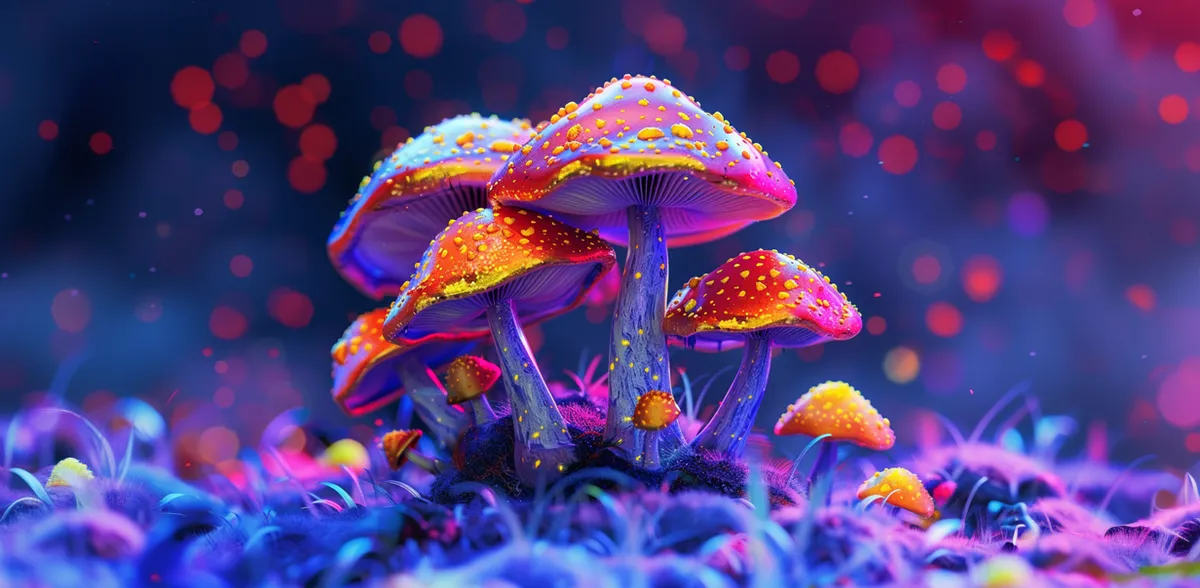By Gabriel García September 2, 2024
In a finding that underscores the undiscovered biological richness of the African continent, two new species of psychedelic mushrooms have been identified in southern Africa. These species, both of the genus Psilocybe, known to contain psilocybin, the active psychedelic compound, were found in areas previously unexplored by Western science.
Psilocybe ingeli: A Discovery in the Kwa-Zulu Mountains
Psilocybe ingeli was discovered by Talan Moult, a self-taught mycologist, in the Kwa-Zulu Mountains, South Africa. This mushroom has unique physical characteristics that distinguish it from other nearby species. Its stems are brown and slender, while its delicate, ribbed caps show a range of colours from light brown to beige. One of the most distinctive characteristics of this species is the conical shape of its caps, in contrast to related species such as Psilocybe silvatica, which has wider, flatter caps.
Psilocybe ingeli is a close relative of Psilocybe keralensis, a species identified in Kerala, India, suggesting an interesting biogeographical connection that could have implications for the study of the global distribution of psilocybian fungi.

Psilocybe maluti: The Ancestral Wisdom of the Basotho
Psilocybe maluti, on the other hand, was rediscovered in the highlands of Lesotho, a mountainous country in southern Africa. This fungus grows especially in rural areas, such as in piles of cow dung. The Basotho tribe, the original inhabitants of these lands, have known about this fungus for generations and call it koae-ea-lekhoaba. Traditionally, the Basotho use this mushroom in spiritual ceremonies, where it is prepared by soaking it in warm water together with Boophone disticha (known locally as leshoma), creating a trance-inducing decoction.
Psilocybe maluti is distinguished morphologically by its elongated, pointed, golden-brown caps and thick, cream-coloured stems. Although related to Psilocybe chuxiongensis, a species discovered in China, Psilocybe maluti has distinct differences, such as flatter caps and golden details, which justify its classification as a new species.
Significance of these discoveries
The discovery of these new species of psilocybe fungi in southern Africa not only expands our knowledge of the continent’s biodiversity, but also highlights the importance of indigenous communities in the preservation and transmission of biological knowledge. At a time when interest in psychedelic mushrooms is booming due to their potential therapeutic applications, these findings could have significant implications for science and medicine.
These discoveries underline the need to continue to explore and document the world’s biodiversity, and to recognise the value of ancestral knowledge in understanding the natural resources that remain hidden in the remotest corners of the globe.

If you are interested in learning more about this exciting world, we invite you to consult the Psychonaut’s Guides by Argonowta. These books will give you a broad and balanced view of psychedelics and their potential therapeutic effects. Remember, however, that these substances are not a panacea or a magic solution to all your problems. Their use requires professional guidance, an appropriate context and a responsible attitude. Psychedelics can be a powerful tool for personal change, but they can also be dangerous if used inappropriately or irresponsibly.
The Psychonaut’s Guides from Argonowta Publishing is a collection of books that explain in a rigorous and accessible way the scientific, historical, cultural and experiential aspects of psychedelic substances. These guides offer updated and contrasted information on the therapeutic and neuroscientific applications of psilocybin, LSD, DMT and MDMA, as well as practical advice on how to prepare, carry out and take advantage of psychedelic experiences. The Psychonaut’s Guides are a must-have reference for anyone interested in learning about the psychedelic renaissance that is transforming mental health and changing lives.





